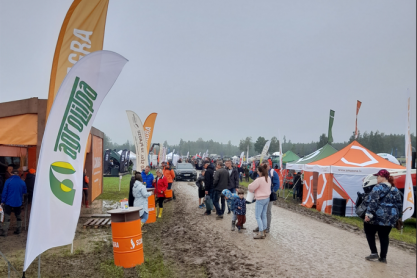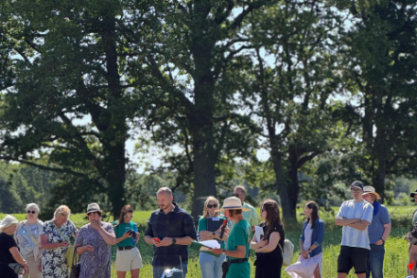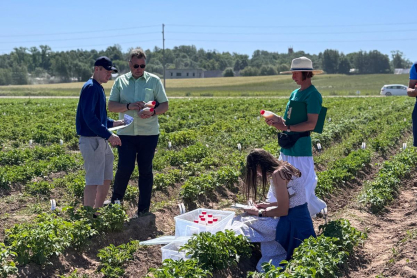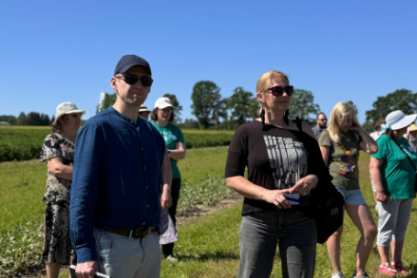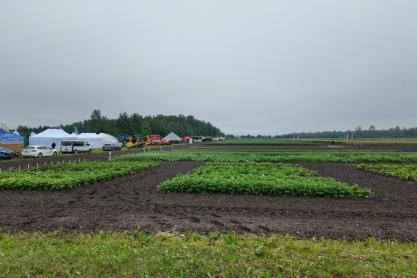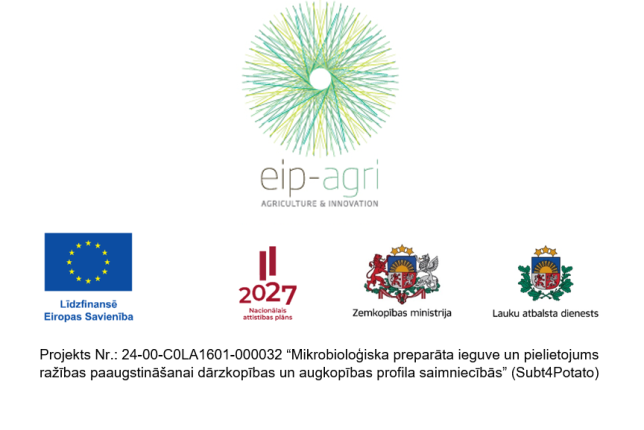From By-product to Yield Increase – a Microbiological Innovation in Potato Cultivation
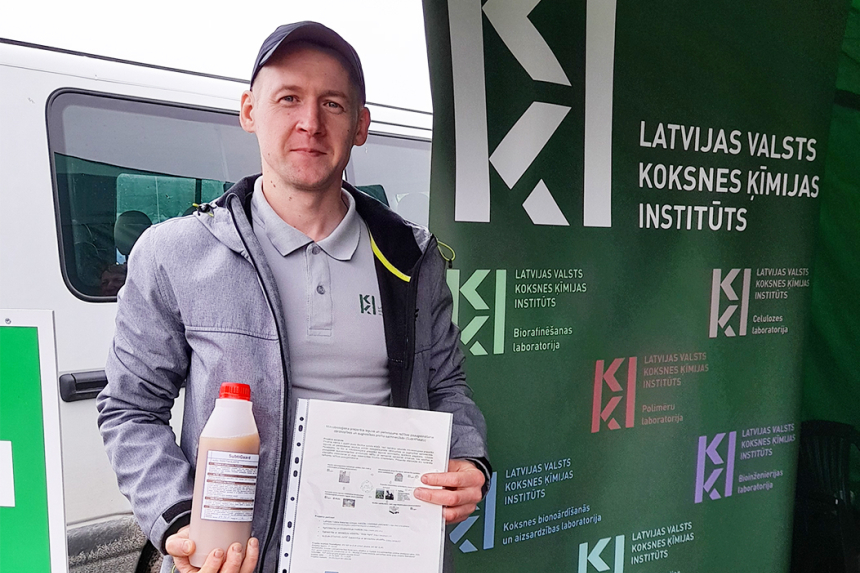
In July, at two major agricultural events, the Agro-Resources and Economics Institute (AREI) Field Day in Priekuļi and the Field Day in Viļāni, a new microbiological plant biostimulant based on Bacillus subtilis MSCL 1441 bacteria was presented. This innovation is part of the Rural Support Service (LAD) project Production and application of a microbiological preparation under farm conditions for increasing yield in horticulture and crop farming enterprises (Subt4Potato) (Project No.: 24-00-C0LA1601-000032), which aims to develop an effective and environmentally friendly solution by using heated potato cell sap – a starch production by-product – as a growth medium for cultivating microorganisms.
The preparation is intended for use in organic and integrated farms to promote plant growth, thereby not only increasing yield and its quality but also reducing the costs of applied microbiological preparations.
The project combines circular economy principles with innovations in crop cultivation, transforming industrial by-products into high-value agricultural solutions.
Field Day in Priekuļi – 3 July
This year’s Field Day at AREI’s Priekuļi Research Centre brought together farmers, researchers, consultants, and industry stakeholders. The institute conducts trials in both integrated and organic farming systems. In the organic potato trial field, the project’s experimental plots were presented by Ilze Dimante, the head of the AREI section of the project and a leading researcher. The effectiveness of the microbiological preparation is being tested on two potato varieties suitable for starch production, evaluating different application rates and comparing them with a control and another registered preparation. Visitors could observe the effects of challenging weather conditions, as the cool and wet start to the season had significantly delayed crop development.
The project manager, Dr. sc. ing. Oskars Grīgs, senior researcher at the Latvian State Institute of Wood Chemistry, presented the project’s objectives, interim results, and explained the novelty of the preparation’s production technology, as well as answered questions from attendees.
Participants also had the opportunity to explore a wide range of trials for various cereal, legume, and potato varieties in both integrated and organic cultivation systems.
Field Day in Viļāni – 10 July
The Viļāni event gathered several hundred visitors, where colleagues from the Latgale Agricultural Science Centre (LLZC), in cooperation with AREI, presented both conventional and organic trials. This year’s focus was on the challenges caused by excessive rainfall and its impact on potato development.
At both events, the Latvian State Institute of Wood Chemistry was represented by Dr. Oskars Grīgs, Head of the Laboratory of Bioengineering. He introduced visitors to the preparation’s production technology and its significance in the circular economy, and personally handed out labelled 1-litre samples of the product to collect direct feedback from farmers on its effectiveness.
Science, Innovation, and Cooperation
The project brings together the Latvian State Institute of Wood Chemistry as the lead partner, the Institute of Agricultural Resources and Economics, and the companies “Aloja Agro” and “ALOJA-STARKELSEN”. This partnership is not merely formal – it is built on mutual trust, long-term experience, and a shared goal of introducing an innovation into Latvian agriculture that is both economically viable and environmentally friendly.
The scientists’ task is to create an effective and safe preparation that ensures stable yields even under variable climatic conditions, while reducing the need for chemical plant protection products. Industrial partners provide the solutions that allow a laboratory-developed idea to be transformed into a market-ready product. Farmers, in turn, contribute practical experience and valuable feedback, helping to assess the preparation’s performance under real working conditions.
This kind of interdisciplinary cooperation forms a strong innovation ecosystem in which every stage, from laboratory research to field application, is closely interconnected.
Project description: Subt4Potato

